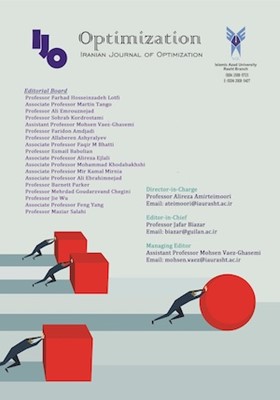Eco-Efficiency Evaluation in Two-Stage Network Structure: Case Study: Cement Companies
الموضوعات : Data Envelopment Analysis
1 - PhD Student, Gianforte School of Computing, Montana State University, Bozman, Montana, USA
الکلمات المفتاحية: Data envelopment analysis, Data mining, Malmquist Productivity Index, Decision tree, Apriori algorithm, Two Stage Model,
ملخص المقالة :
The cement industry, as a primary trade, plays an important role in the development of a country's organization. This industry in Iran, however, despite of profuse benefits such as high-value mines, faces many challenges. Problems such as exploitation of the production require the need for doing research into this area. The main purpose of this paper is to examine the Eco-efficiency in Iran's 22 local cement companies over 2012-2016. This paper develops a Charnes, Cooper & Rhodes input oriented (CCRIO) Data Envelopment Analysis (DEA) approach for measuring the efficiency of decision processes which can be separated into two stages. The first stage uses its specific inputs to produce outputs, which part of them are consequently considered as the inputs of the second stage. The first stage is considered as the production stage and the second stage as the pollution control stage. A novel converting two-stage to one stage model is proposed to obtain the Eco-efficiency. Consequently, Malmquist productivity index (MPI) is computed to assess productivity. Although DEA is a respected method for evaluating, it fails to extract unknown information. In this study data mining decision tree and Apriori algorithms are used to extract hidden rules, and to remove unrelated data.


